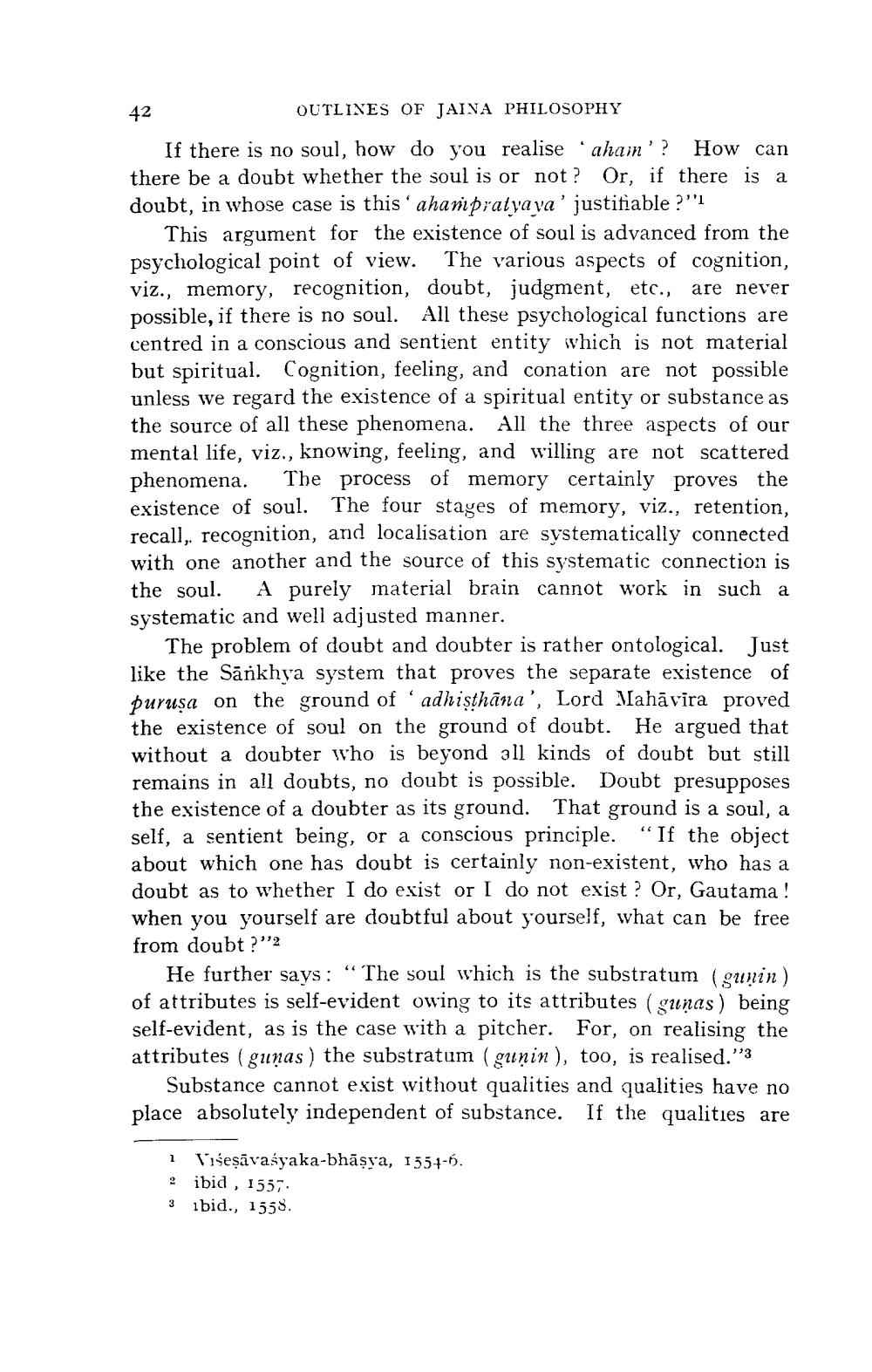________________
42
OUTLINES OF JAINA PHILOSOPHY
If there is no soul, how do you realise 'aham'? How can there be a doubt whether the soul is or not? Or, if there is a doubt, in whose case is this' ahanpratya va' justifiable ?"1
This argument for the existence of soul is advanced from the psychological point of view. The various aspects of cognition, viz., memory, recognition, doubt, judgment, etc., are never possible, if there is no soul. All these psychological functions are centred in a conscious and sentient entity which is not material but spiritual. Cognition, feeling, and conation are not possible unless we regard the existence of a spiritual entity or substance as the source of all these phenomena. All the three aspects of our mental life, viz., knowing, feeling, and willing are not scattered phenomena. The process of memory certainly proves the existence of soul. The four stages of memory, viz., retention, recall, recognition, and localisation are systematically connected with one another and the source of this systematic connection is the soul. A purely material brain cannot work in such a systematic and well adjusted manner.
The problem of doubt and doubter is rather ontological. Just like the Sankhya system that proves the separate existence of purusa on the ground of adhisthāna', Lord Mahāvira proved the existence of soul on the ground of doubt. He argued that without a doubter who is beyond all kinds of doubt but still remains in all doubts, no doubt is possible. Doubt presupposes the existence of a doubter as its ground. That ground is a soul, a self. a sentient being, or a conscious principle. “If the object about which one has doubt is certainly non-existent, who has a doubt as to whether I do exist or I do not exist ? Or, Gautama ! when you yourself are doubtful about yourself, what can be free from doubt?"2
He further says: “The soul which is the substratum (gunin) of attributes is self-evident owing to its attributes (gunas) being self-evident, as is the case with a pitcher. For, on realising the attributes (gunas) the substratum gunin), too, is realised.''3
Substance cannot exist without qualities and qualities have no place absolutely independent of substance. If the qualities are
1 Višeşāvaśyaka-bhāşva, 1554-0. 2 ibid, 1557 3 ibid., 1558.




